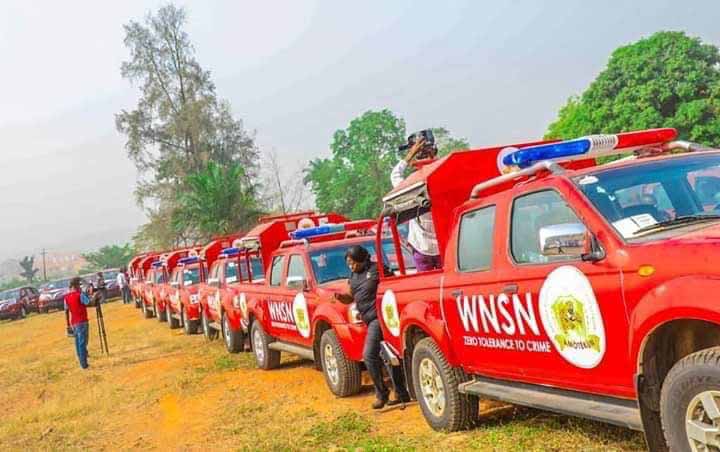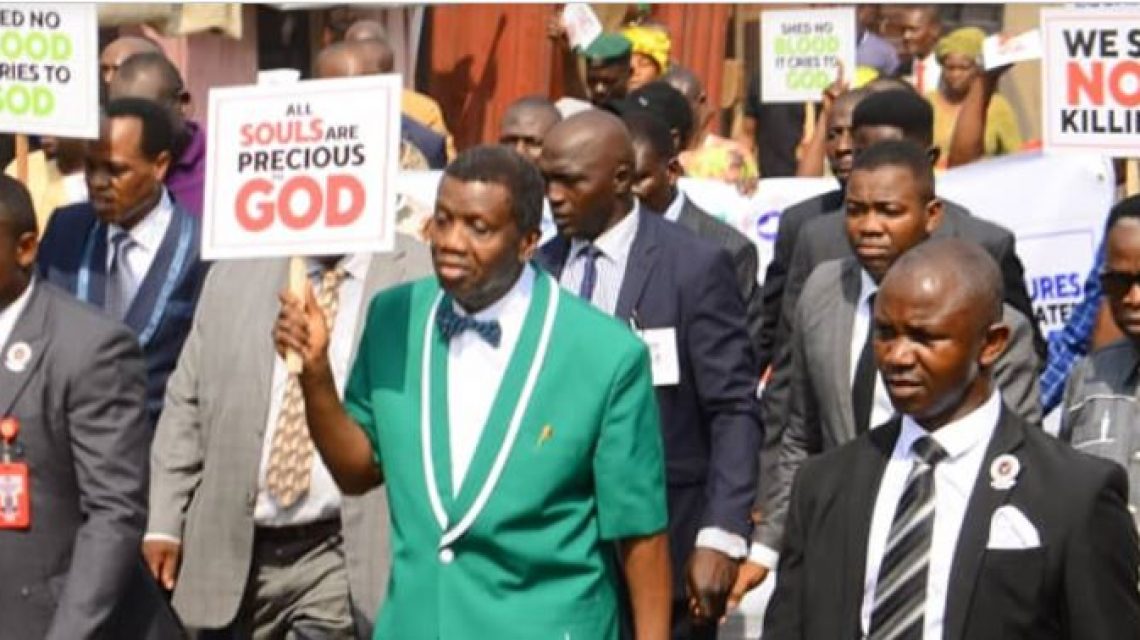
• Violence kills 2,771 Nigerians in five months
• 188 terrorists, 411 bandits killed in May – DHQ
As the world continues to bleed under the devastating pangs of the global coronavirus pandemic, Nigeria’s state of insecurity is still in bold red while kidnapping, banditry, and killings escalate amid weak security response.
In risk and security management, the state of alertness is decoded by colours: Red is a heightened critical level of alertness; Amber means not critical but still crucial and a need to be cautious; Yellow is relatively a state of small risk; and Green means everything is calm.
The state of insecurity is not standardized for a general broad area like the whole country, it is segmented into localities and regions. However, between May 29, 2019 and today, there has been frequent oscillation between Red and Amber in respect to the insecurity in the country.
Just when the attention of governments at all levels is focused on the COVID-19 pandemic, the country’s red zone has largely remained a killing field with lives of thousands of citizens cut short by insecurity.
Since January 2020, Boko Haram insurgency, murderous activities of bandits, kidnappers, herdsmen and sectarian violence have claimed no fewer than 2,771 lives in Nigeria, according to the Council on Foreign Relations (CFR), a US-based think-tank under the Nigeria Security Tracker (NST) programme.
A breakdown of the deaths showed that 320 people were killed in January; in February, 597 Nigerians were killed. In March, the figure was 754; April had 625 and as at May 15, 2020, no fewer than 475 people had been massacred.
While the confirmed cases of coronavirus steadily climb to its peak with 8,733 cases and 254 deaths as at Thursday night (May 27), the situation becomes precarious as insecurity could hamper Nigeria’s response to fighting the pandemic after the country’s biggest oxygen plant was shut over insecurity.
Managing Director, Archers Gases, Victor Omole, speaking on the state of availability of medical oxygen in Nigeria and provision of lifeline to the health sector, lamented that its Ilesa oxygen plant, the largest in the country, catering for the southwestern states and middle belt, with supplies extending to Ilorin, Benin, Lokoja, and Abuja when it was operational stopped operation due to myriad of issues, but largely insecurity. It is worse because of the limited access to oxygen and ventilators, amidst grossly inadequate public health services.
Omole said: “Archers Gases is a producer of both industrial and medical oxygen. We produce 99.9 per cent pure oxygen for medical use. Oxygen is the most crucial and critical supply in the treatment and management of COVID-19 patients. The COVID-19 weakens the lungs (which makes breathing difficult or sometimes almost impossible) the patient requires the assistance of supplementary oxygen to help fight the infection.
“This supplementary oxygen are provided in small canister of liquid oxygen. But presently, the gas industry is in a constant state of flux, especially with new medical coming up each day and unforeseen emergencies like COVID-19 pandemic; now it is compounded by the supply flux, logistics, capacity manpower and overall challenges of operating in Nigeria. We are however scaling up our Lagos plant to meet up with the challenge and make up for the shut Ilesa plant.”
Prior to last year’s general elections in February, anybody could jump into their vehicles to leave Lagos State at 6:00p.m. for Ile-Ife in Osun State without thinking twice. The only challenge may be bad roads but until when the pandemic scare broke out early this year, it would be considered almost a suicide mission to embark on such journey.
The southwest was nearly turned to a killing field and field day for kidnappers and herders/farmers clashes. This came to a raucous head with the brutal killing of the daughter of Reuben Fasoranti, Afenifere leader, Mrs. Funke Olakunrin, in July 2019 by armed men along Ondo-Ore highway. The furore over that dastardly incident galvanized leaders of the six southwest states in January 2020 to initiate the Western Nigeria Security Network codenamed Operation Amotekun, as a security outfit to be domiciled in Lagos, Ogun, Oyo, Osun, Ondo and Ekiti states to compliment the security agencies in curbing insecurity in the region.
This has quickly escalated to the various regions of the country forming their security outfits to curb the rising insecurity. The South East and South South governors were also at the stage of fine-tuning their regions’ security outfit and passing laws that will give it the outfit legal backing before the coronavirus pandemic stalled the process.
The Abuja-Kaduna Expressway and the surrounding bushes along the road are dreaded zones of armed banditry as many motorists have abandoned the road and have taken to rail travel despite the much advertised “Operation Puff Adder” launched by the police to tame the scourge.
Some of those who had been kidnapped but released after payment of huge ransom tell stories of the level of sophistication of the kidnappers. According to reports, some victims paid as high as N10 million to gain their freedom.
The story of their ordeals in the hands of the abductors is usually laden with anguish and fear. In the last few days, Nigerians have been inundated with such sad stories, which only increased the apprehension level and anger against the government for failing in its core responsibility of protecting lives and properties.
Nothing changed in the north in the last one year, which had for several years being the epicenter and theatre of violence in the country. From Boko Haram and its ISWAP faction to Ansaru insurgency, farmers/herders conflict, banditry, kidnappings, ethno-religious conflicts, and cattle rustling, the death spiral appears unstoppable.
Of the 19 northern states and the FCT, only Kwara State and the FCT are relatively peaceful or have the lowest rate of insecurity, but all the other 18 states are inflamed by one form of violence or the other.
The killing spree got to a head that on February 2, Christians that Sunday staged a nationwide protest against the resurgence of killings and general insecurity in the country. The “Prayer Walk” against insecurity was called by the Christian Association of Nigeria (CAN) to coincide with the end of the three-day prayer and fasting for the nation.
President of CAN, Rev. Samson Ayokunle led the protest in Ibadan after a prayer session at Orita Mefa Baptist Church. He is also the president of the Baptist Convention. Also, General Overseer of the Redeemed Christian Church of God (RCCG) Pastor Enoch Adejare Adeboye, was on the streets in Ebute Meta, Lagos, bearing a placard and leading members of his church on the “Prayer Walk.”
In a recent killing, Boko Haram killed the CAN chairman of Michika Local Government Area, Adamawa State, Rev. Lawan Andimi, on January 21. Andimi, who was declared missing on January 2, 2020, had in a video published on January 5, confirmed that he was in the custody of Boko Haram. Boko Haram later released a video where he was beheaded in a shallow pit dugged to bury his body.

But President Muhammadu Buhari has vowed to use every resources at his disposal to reduce the spate of violence and insecurity in the country. He gave the assurance at the end of the national security council, which he chaired at the council chambers of the State House, Abuja on May 15, 2020.
Addressing State House Correspondents at the end of the meeting, National Security Adviser (NSA), Maj. Gen. Babagana Monguno (rtd.), said the meeting started with a comprehensive brief by the Secretary to the Government of the Federation and Chairman of Presidential Task Force in COVID-19 on the gains made so far.
The NSA said the SGF brief was mainly focused on the current situation in areas that needed urgent attention and possible solutions. “I also highlighted other issues that are related to the problems of kidnapping, which we noticed has been on the increase in recent times.
“But the most important thing is that I stressed to council that there is a need for collective action, not just for the security agencies, but by all ministries, departments and agencies of governments, civil societies organisations and all non-governmental organisations within Nigeria. We have, of course know that we are all firmly within the cross heirs of all kinds of criminal elements trying to undermine national security. Mr. President noted all the issues raised and of course in due time he will be able to address these issues.”
Meanwhile, there has been an upswing beat in the military’s fight against Boko Haram in recent weeks. No fewer than 188 members of the Boko Haram and Islamic State of West African Province (ISWAP) terror groups and 411 bandits have been killed by troops in the last one month. The terrorists and other criminal elements were killed in various operations conducted by the Armed Forces of Nigeria.
In a statement by Coordinator Defence Media Operations, Maj. Gen. John Enenche, 236 victims, including women and children were rescued from terrorists’ dens within the time under review. According to the statement, “I am to state that joint operations by the Nigerian Army, Nigerian Navy, Nigerian Air Force and other security agencies have degraded the common enemies of Nigeria and reduced economic sabotage. Troops of the Armed Forces operating in various theatres across the country recorded tremendous successes within the period under review.”
In Operation Lafiya Dole, several members of the Boko Haram Terrorists/ISWAP (BHT) fighters and senior commanders were neutralized and their logistics facilities, gun trucks and other structures destroyed as well as recovery of weapons.



